'Neural' headphones are big at CES – here are 4 fascinating products coming soon
The latest innovations in headphones tap into auditory nerves
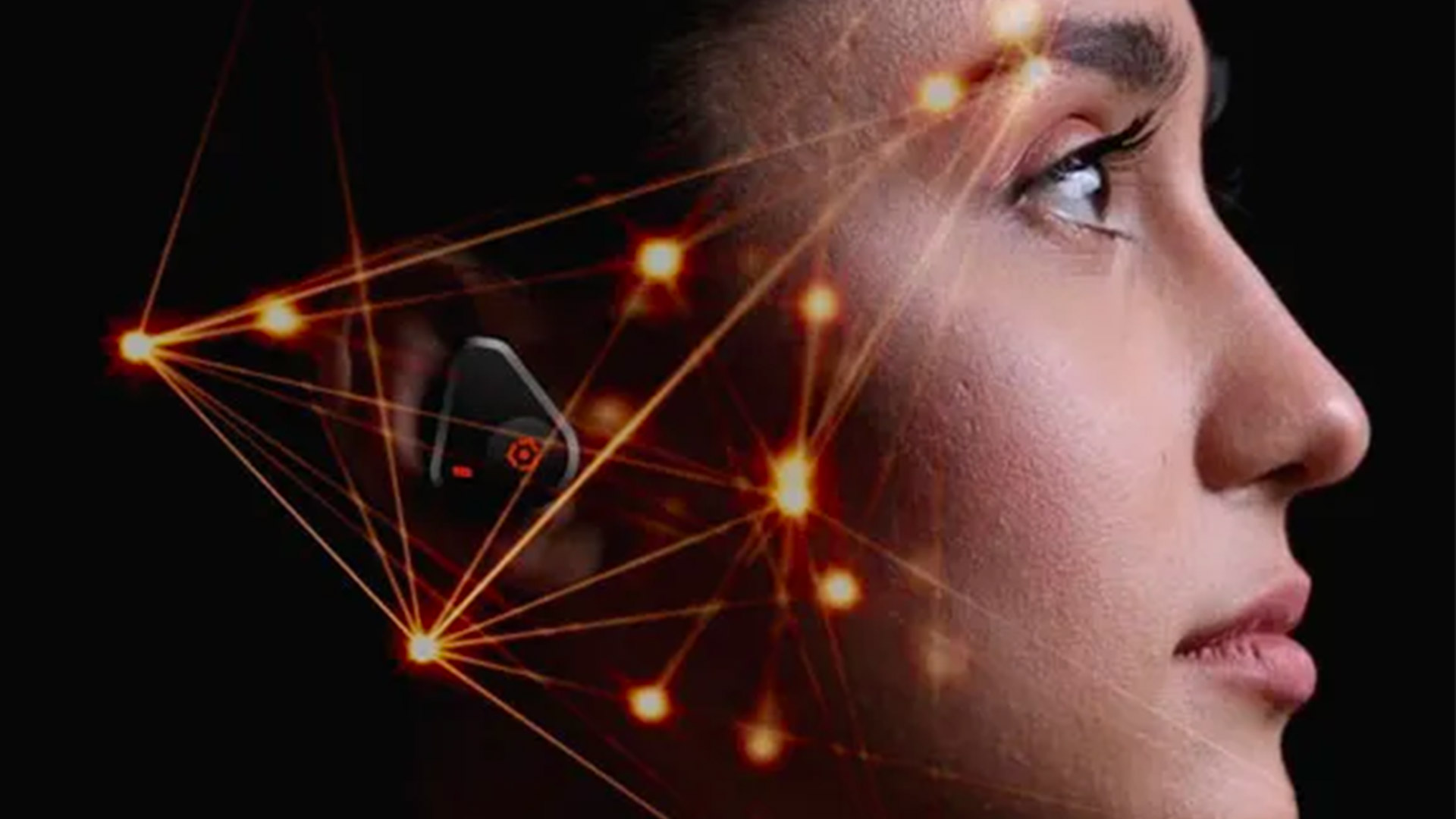
Sign up for breaking news, reviews, opinion, top tech deals, and more.
You are now subscribed
Your newsletter sign-up was successful
Increasingly, competitors for the best headphones aren't just focused on delivering top-quality audio. Every year it seems that new strings are being added to their bow, and a big thing we're seeing in buds and headphones at CES 2024 are 'neural' technologies.
We also saw a couple more interesting earbuds pushing the boundaries of headphones tech, including TimeKettle's new multi-device X1 two-way translator earbuds and BREGGZ's in-ear computer wireless earbuds, which also have a translation app. With Samsung also looking to add real-time translation to its next Galaxy Buds, it's safe to say this is a tech we'll be hearing a lot more about.
But the idea of headphones being able to read minds is – in our opinion – even more outlandish, and therefore interesting. I've rounded up four neural headphones I spotted at CES 2024, all with very different designs.
1. Naqi Neural Earbuds
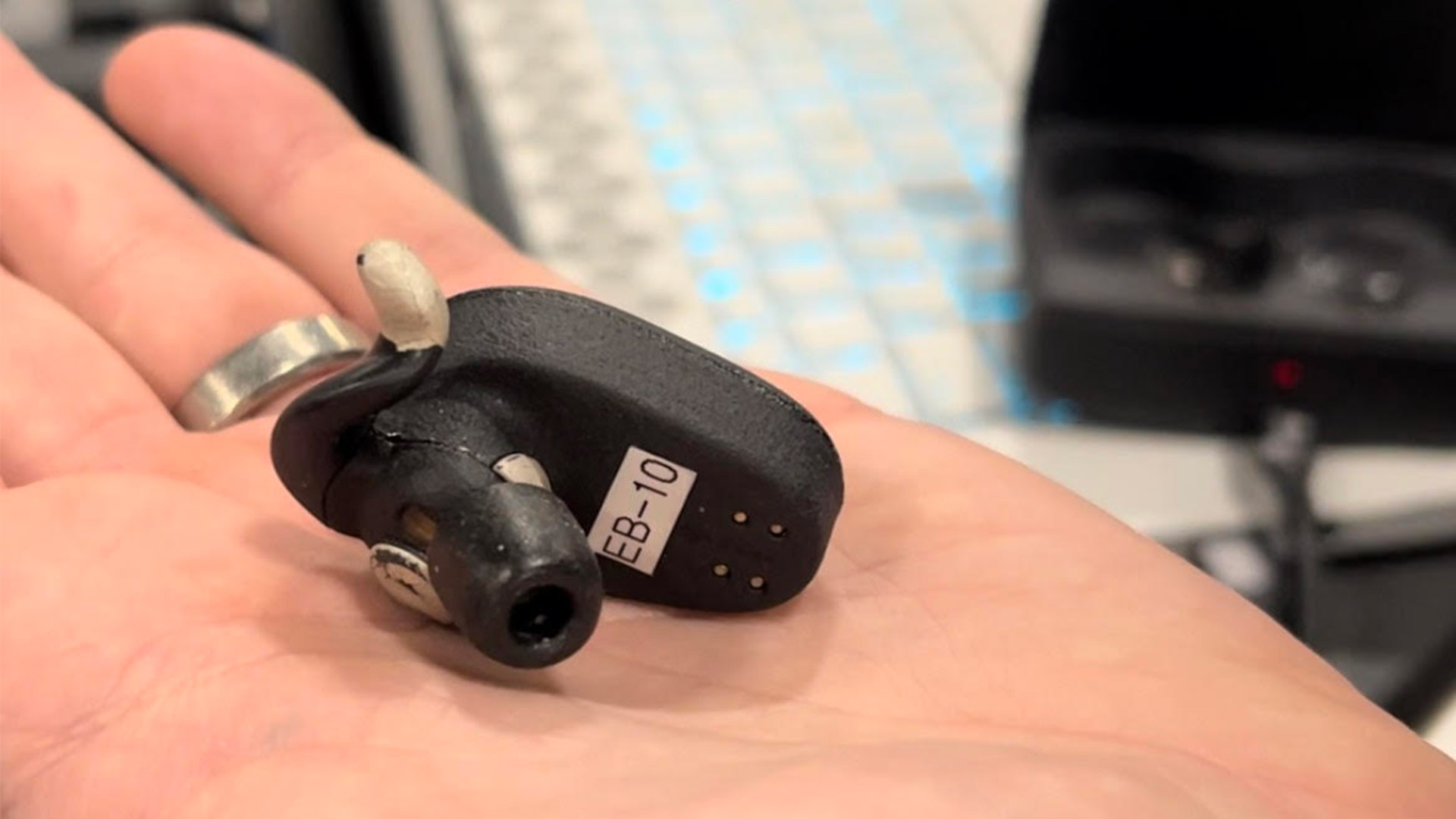
Brain implants sound like the stuff of science fiction but there are plenty of companies working on developing this tech for the consumer market. In this case, it's a company called Naqi Logix, which was co-founded by Dave Segal four years ago in Canada.
Segal tells me that the reason he invented wearable tech that could use electric signals from the brain to control various devices, from smart home electronics to even flight simulators, was inspired by a wish to help a friend who had become quadriplegic.
"We build the only neural earbuds on planet Earth that can serve as a safe, non-invasive alternative to brain implants. [They offer] the ability to have a full command of control over Windows and Mac computers, including typing, browsing, shopping and playing contemporary video games," Segal explains.
The idea behind the earbuds, which use gyroscopic, muscle and brainwave sensors, is that the computer interface tech inside them could be used in any of the best wireless earbuds to give them this added control. Given its ability to completely transform lives, it's no wonder why the Naqi Neural Earbuds was a CES Innovation Award honoree for accessibility and aging tech.
Sign up for breaking news, reviews, opinion, top tech deals, and more.
2. NeurGear ZenBud
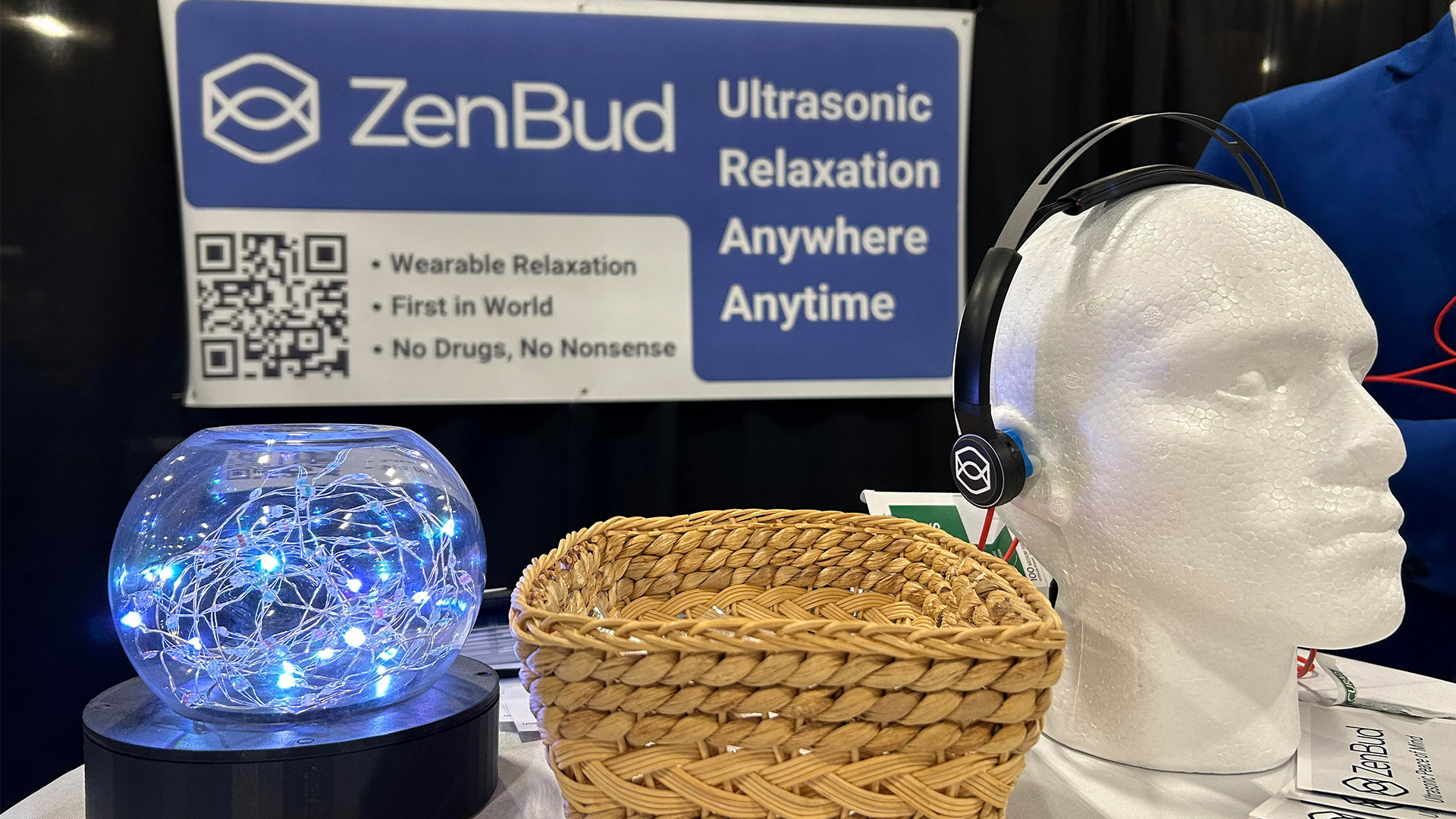
Instead of sensing nerves and translating those signals to control a device like the Neural Earbuds above, NeurGear's ZenBud headset uses ultrasonic sound waves to relax you. The tech works by stimulating what's called the Vagus nerve, which is responsible for various bodily functions such as digestion, heart rate and breathing.
John Hacker, the founder and CEO of NearGear, explained to me that by stimulating a person's Vagus nerve, it triggers a rest response, which sends calming signals to the brain. This helps to "strengthen your stress resilience and your ability to relax. By using it just five minutes for a week, you can see marked increases in stress resilience and relaxation".
While the ZenBud is still in its early stages – NeurGear was only founded in 2021 – ultrasound tech like this could be rolled out to the best earbuds in the future. But if you want to try it out sooner then, as part of NeurGear's Kickstarter campaign, you can pre-order it now for $1 and receive a $100 discount off the purchase price, which is not yet known.
3. MyWaves Technologies Pebble
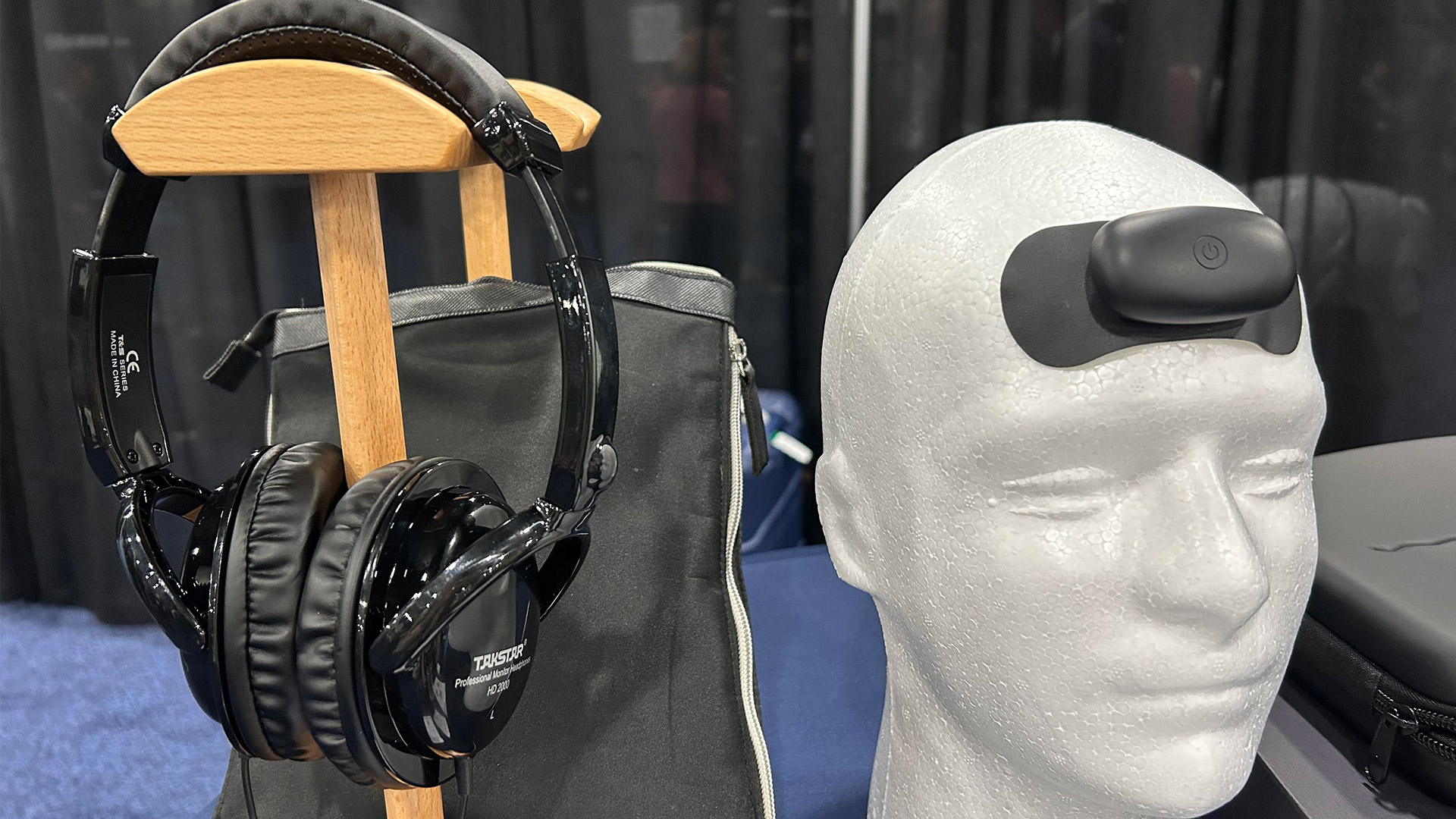
Pitched more as a headphone accessory, the myWaves Pebble device, which you can see in the picture above, attaches to your forehead to analyze your brain waves while sleeping to create custom music tracks that it claims will help you sleep.
"We have a science-backed technology that basically uses your delta waves, which are linked in your brain to sleep, to tell you all the activities of your sleep, from deep sleep to rapid eye movement (REM). By selecting a very specific part of your [delta waves while] sleep and turning it into music, we can produce music that triggers your brain to fall asleep quicker, longer and better," Jean Francois Destexhe, the CEO of myWaves Technologies, says.
Destexhe assures me that this device isn't meant to be worn every night, though. Instead, the idea is that you wear it for one night to get the recording. You then upload it to myWaves' platform, which next transforms your "brainwaves into lullabies to help you fall asleep faster".
You can currently sign up for early access to the tech, which was originally invented by Alain Destexhe and Luc Foubert, who are researchers of the Paris-Saclay Institute of Neuroscience (NeuroPSI), and receive a 40% discount off the price when it does become available.
4. Earable Neuroscience Frenz Brainband
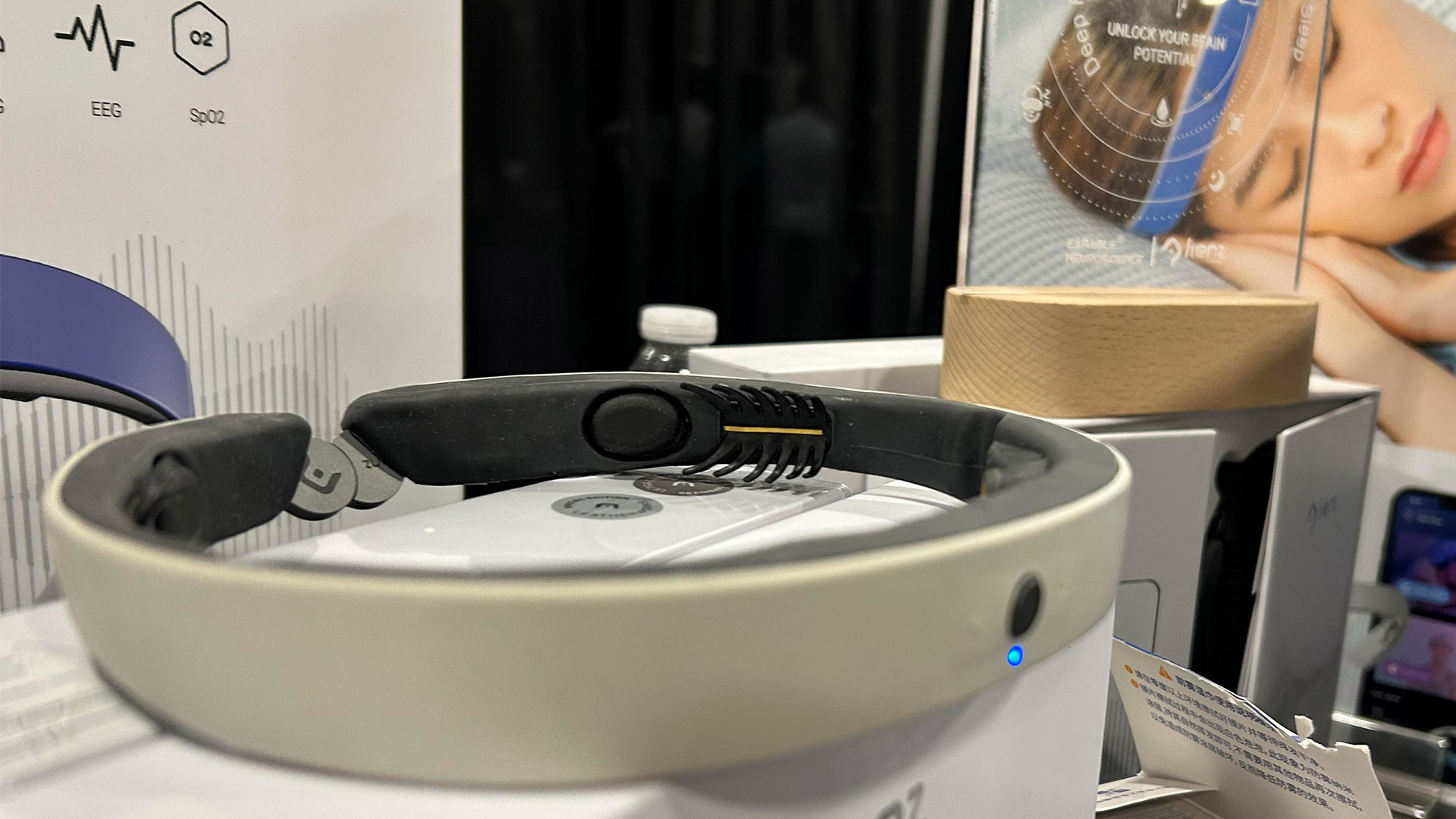
Another company focusing on finding a solution to falling and staying asleep is Earable Neuroscience, which has been running since 2018 with the help of the University of Colorado and University of Oxford. Like myWaves, it also tracks your brain's signals to create a custom music track that promises to help you sleep but it instead has a developed a physical headset that you can wear above your ears.
The headset itself uses the same tech as the best bone conduction headphones to play the music, which Kimi Doan, chief growth officer at the company, says is much less intrusive and more comfortable than placing an earbud directly in the ear while trying to sleep. She tells me that "it tracks in real-time your brain activity signals and neuro feedbacks. Based on that, the AI will automatically personalize and select the digital therapeutics that are for your brain".
Earable Neuroscience currently has 18 patents in various stages of completion and is the winner of CES' Innovation Awards for 2024. It had also won the CES Awards for Wearables tech last year. If you want to be one of the first to try out its Frenz Brainband then you can pre-order it for $490, with it scheduled to be shipped by February 2024.
We’re covering all of the latest CES news from the show as it happens. Stick with us for the big stories on everything from 8K TVs and foldable displays to new phones, laptops, smart home gadgets, and the latest in AI.
And don’t forget to follow us on TikTok for the latest from the CES show floor!
You might also like

Amelia became the Senior Editor for Home Entertainment at TechRadar in the UK in April 2023. With a background of more than eight years in tech and finance publishing, she's now leading our coverage to bring you a fresh perspective on everything to do with TV and audio. When she's not tinkering with the latest gadgets and gizmos in the ever-evolving world of home entertainment, you’ll find her watching movies, taking pictures and travelling.